Resident Evil: Village - Winters' Expansion
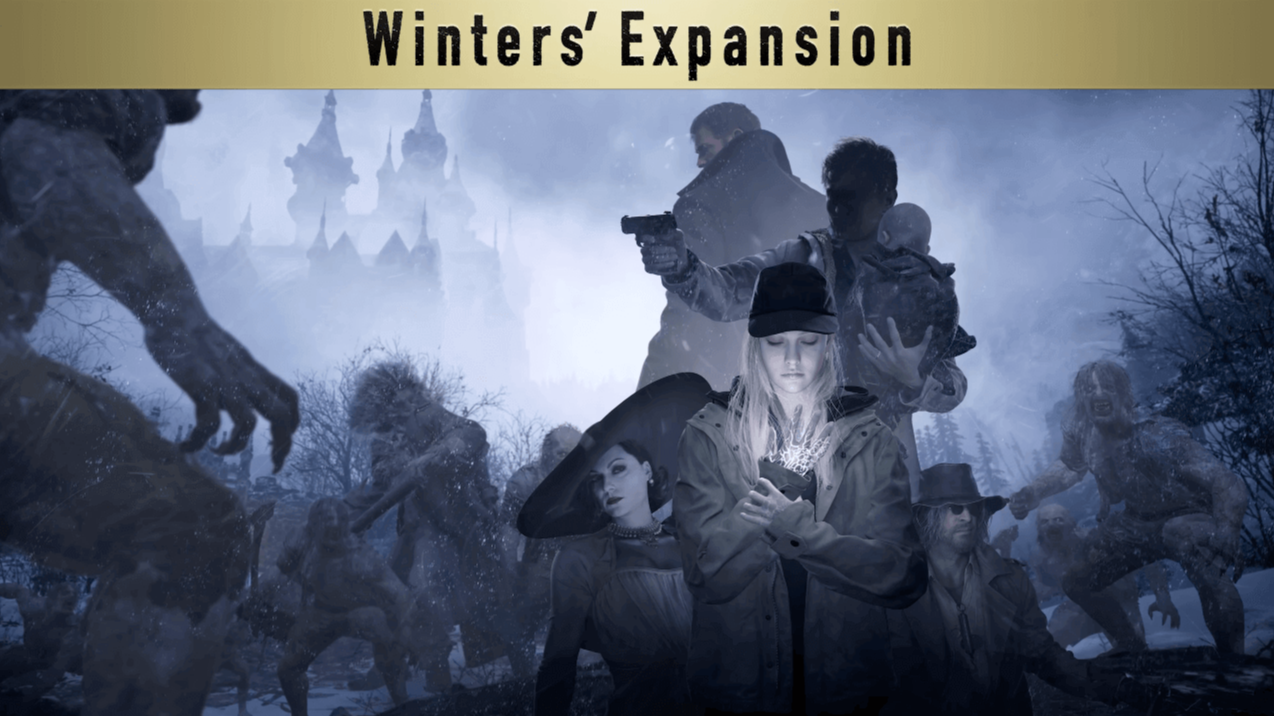
Resident Evil: Village - Winters' Expansion - Expensive Cheap
Imagine for a moment that you are a journalism faculty member. After giving a lecture, you give your group a homework assignment: write an essay on a given topic. You have a rough idea of the kind of work you are going to read, based on the students' grades. In your group there are only two interesting students endowed with non-standard thinking: the first one is an erudite, diligent student, whose works are always pleasant to read: these works are laconic, there is always a sense of respect for the subject, and the structure of works does not disintegrate into separate paragraphs; the second student is extremely lazy. This is what he has bribed you with: he always strives to spend as much effort as possible on the task at hand. His work - a real literary Frankenstein, woven from dozens of sources of information.
And now it's time to check your homework. You collect the students' scribbled worksheets, and at home you get acquainted with their crafts. Out of dozens of papers at about the same level, you come across two curious ones: one from a good student, and one from a slacker. These works are surprisingly similar, but if the Bachelor's essay is acceptable, some points even resonate in your soul, the second work is something crumpled, cut off in half a word, but the content is extremely similar to the Bachelor's work. The essays are so similar that you get the impression that two different people had the same thoughts in their heads at the same time. In the second paper, however, the thought is not revealed at the end of the paragraphs, and each subsequent paragraph inadvertently begins with the word "Incidentally."
After reading the papers, you give the good student a "good" grade and the slacker a "satisfactory" grade simply because he has bothered to cheat. During the announcement of grades the slacker's eyes widen, you notice this moment and get a little gloated, because the cheating tricks won't work on your shift.
The bell rang for recess. On the way to the cafeteria, you catch a strange conversation: the slacker in high tones is outraged at the good student, demanding his money back. It turns out that the slacker paid the good student to write his essay for him. The good student promised to do everything on a decent level, but you already know that he wrote a lousy essay.
You feel betrayed, because you didn't expect to see your favorite student writing such a shoddy paper, even if he didn't try hard enough. You feel betrayed, because you didn't expect your favorite student to be as sloppy as you thought he was. You feel cheated. You do not know why you want to find out: and whether the previous work Bachelor received such a concise and tightly built?
You do not seem to have lost anything, but after what happened you are left with a sour aftertaste, as if you were handed something wrong. And you probably have already guessed, that the first student's work is Resident Evil: Village, and the second one is the DLC for Winters' Expansion. Both works are from the same author, but why does the first work leave a nice feeling of completion, and the second one leaves you with a sore feeling like you've been ripped off?
Third Person View and Mercenaries
From the trailer you learn that the DLC offers only 3 new innovations. We will tell you about them from the least to the most interesting. Be warned - further spoilers!
Third-person campaign - In the trailer we are presented this feature as something revolutionary, as something for those who to this day is looking for an analogue of Resident Evil 4. But Resident Evil: Village is not Resident Evil 4, they are two totally different games, so you won't get the same emotions in Resident Evil.
Moreover the third person view doesn't suit Resident Evil: Village. The game is set on the first person view: all the cutscenes in Resident Evil: Village are recorded from the first person, and there are a lot of cutscenes. Whenever it's time to view the cutscene - the camera moves the view back to the protagonist's eyes without any smoothness.
Animations are another Achilles' heel of the third-person view. Resident Evil: Village is well animated. But it's one thing to animate the main character's arms, it's another to animate his entire body. So the third-person animations limp on both legs, as well as, unfortunately, the gunfire. Resident Evil: Village is not sharpened for the old-style view camera, so the cinematography, leveldesign and shooting went to the trash. Third-person view gets a strict "no credit".
New Mercenaries mode - Another trump card in Capcom's marketing campaign. Players who have played the "Mercenaries" in the previous parts of this mode are already familiar, but for the newcomers: this is a mode where you choose a character with a unique set of weapons and abilities, and on the map gradually appears more and more enemies to kill and get points, money and extra time. At the end of the round the player is given a score, and this is where Capcom stumbled, but about that later...
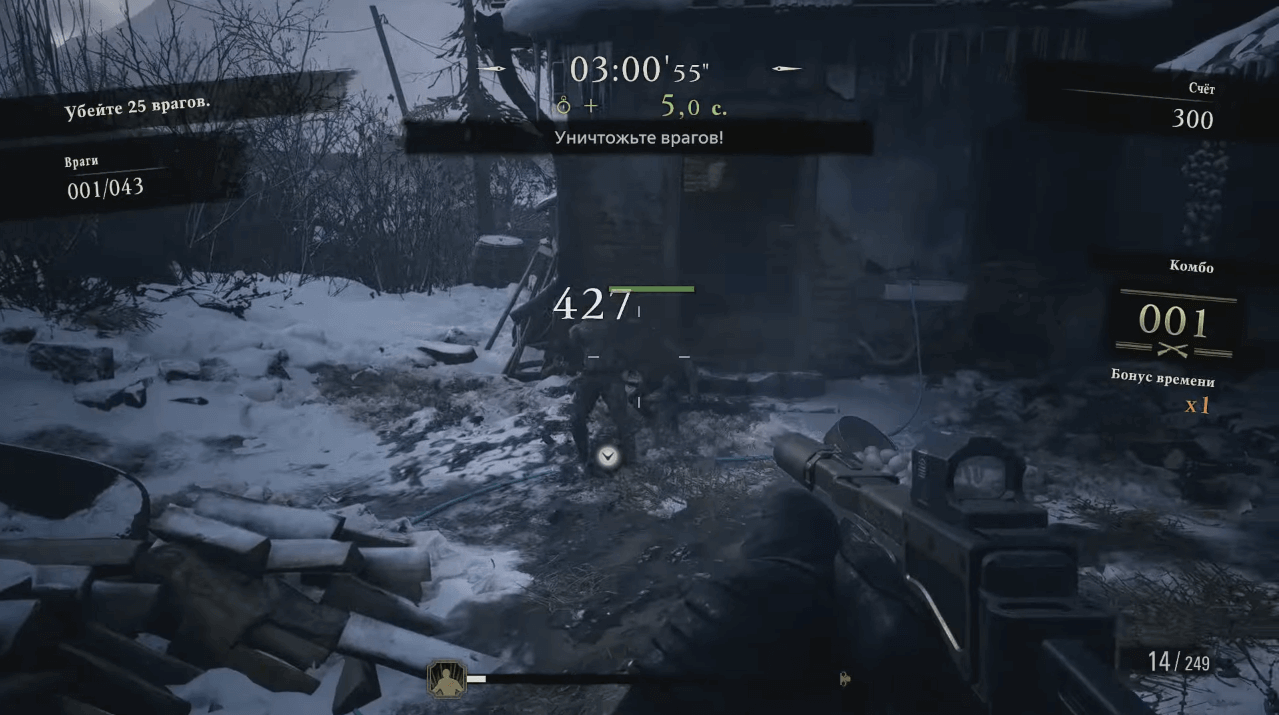
There used to be a lot of characters and locations in Mercenaries. In Winters' Expansion, we play in the proverbial village and three characters, but what kind of...
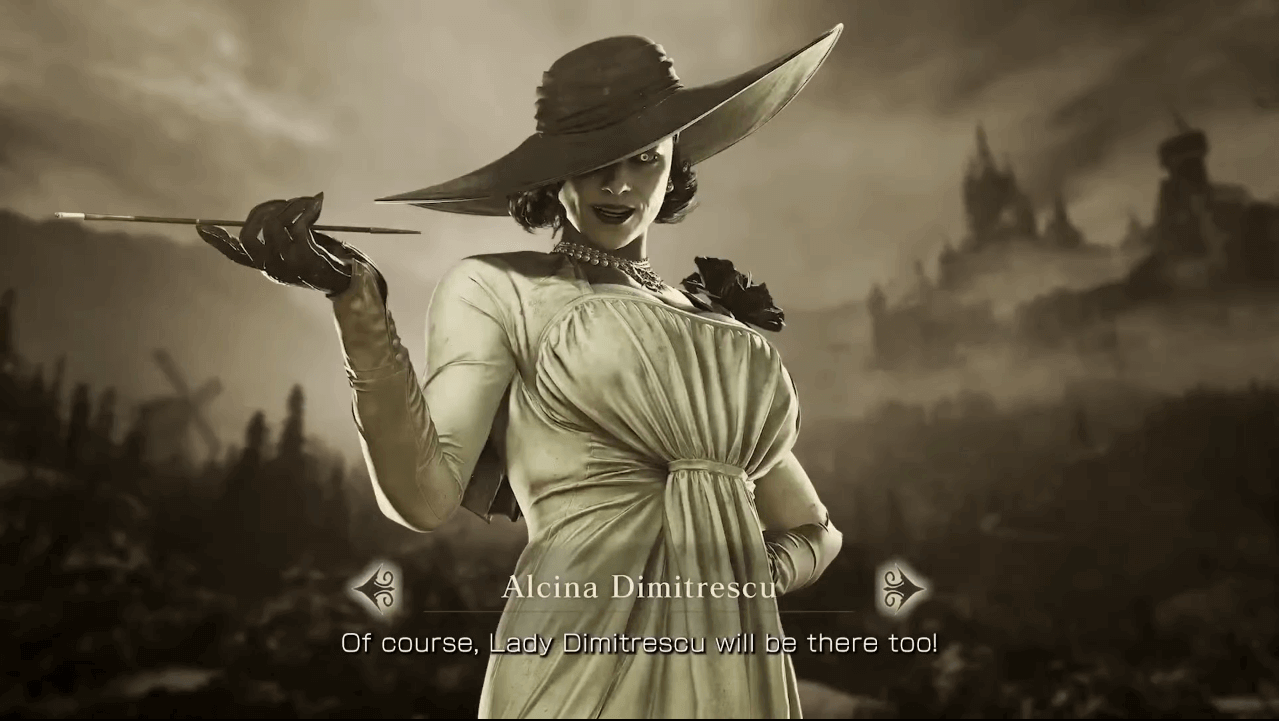
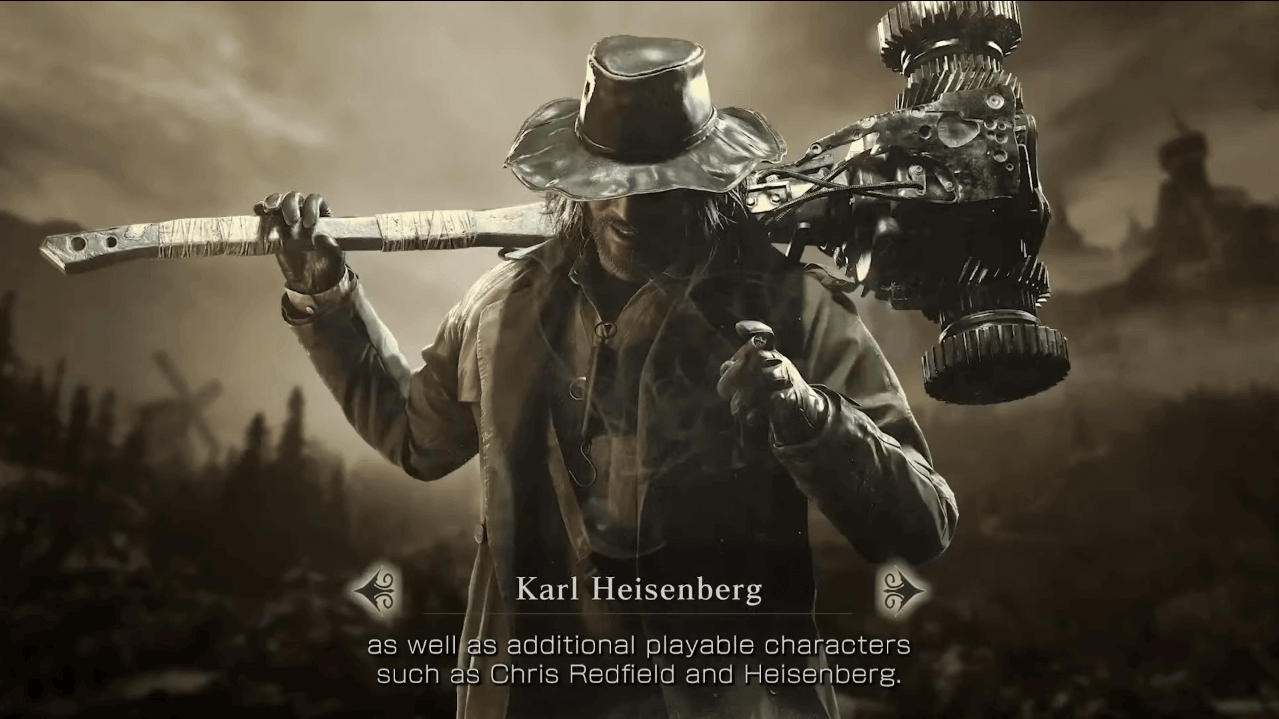
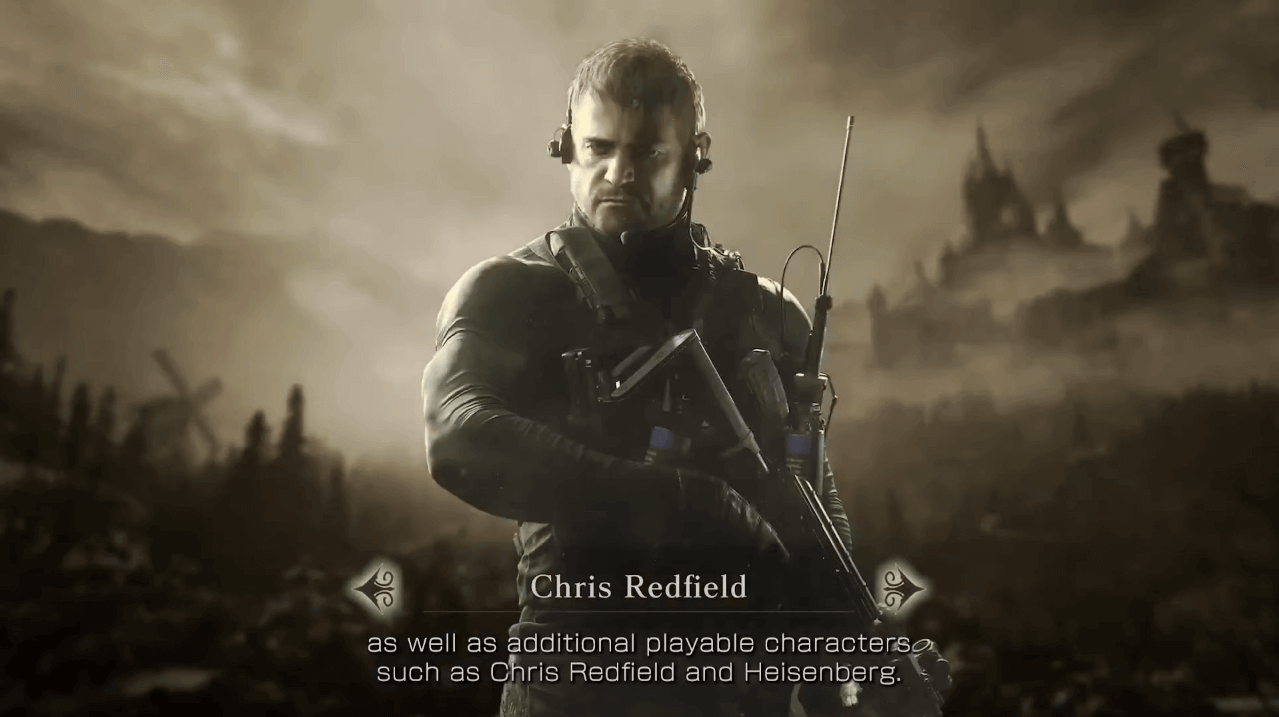
They chose Alsina Dimitresca and Karl Heisenberg, two of the public favorites from Part 8, to play the part of the Mercenaries.
But flattery in front of the audience played a cruel joke with Capcom - the players had inflated expectations, and they were not justified. Gameplay for Dimitrescu consisted of simply casting enemies with no combos or special abilities, and the three-meter vampire's long-range attack is a toss of the dresser. Bravo!
The gameplay for Heisenberg is even better: a mixture of simple melee attacks, shuriken throwing, and summoning a kamikaze drone. Against this underdeveloped Nemesis mod, playing as Chris Redfield is the most balanced. But if you think you'll skip the shoot-em-up and go straight to wagering on the bosses of the original Resident Evil: Village, you're in for a nasty surprise from Capcom. To unlock Alsina Dimitrescu, you have to score a high "S+" for Chris Redfield. All to keep you in the DLC a little longer than you'd like. In addition, only in Mercenaries is third-person view unavailable. Forget your dreams of making a good slasher.
"Mercenaries" Winters' Expansion is fanservice and entertainment for half an hour at most. "Mercenaries" gets a strict "unsatisfactory"...
But the final part of the DLC deserves its own module...
Shadow of Roses is something...
Resident Evil has never been a story-driven game, but the Shadow of Roses story add-on broke Resident Evil: Village's anti-record and deservedly took home the title of "Stupidest Scenario". If you thought that this DLC was for better understanding of the Winters' family history, were afraid of missing the plot twists and turns, that the developers will focus on in next parts - you can relax, Shadow of Roses doesn't move the Resident Evil story. If you're not familiar with the new DLC, you'll miss the only interesting point, which I'll mention later...
The Shadow of Roses storyline is not a continuation of the Resident Evil: Village story, but a semantic plug before the finale. The story begins with Roses being contacted by one of Chris Redfield's subordinates with the call sign "The Dog":
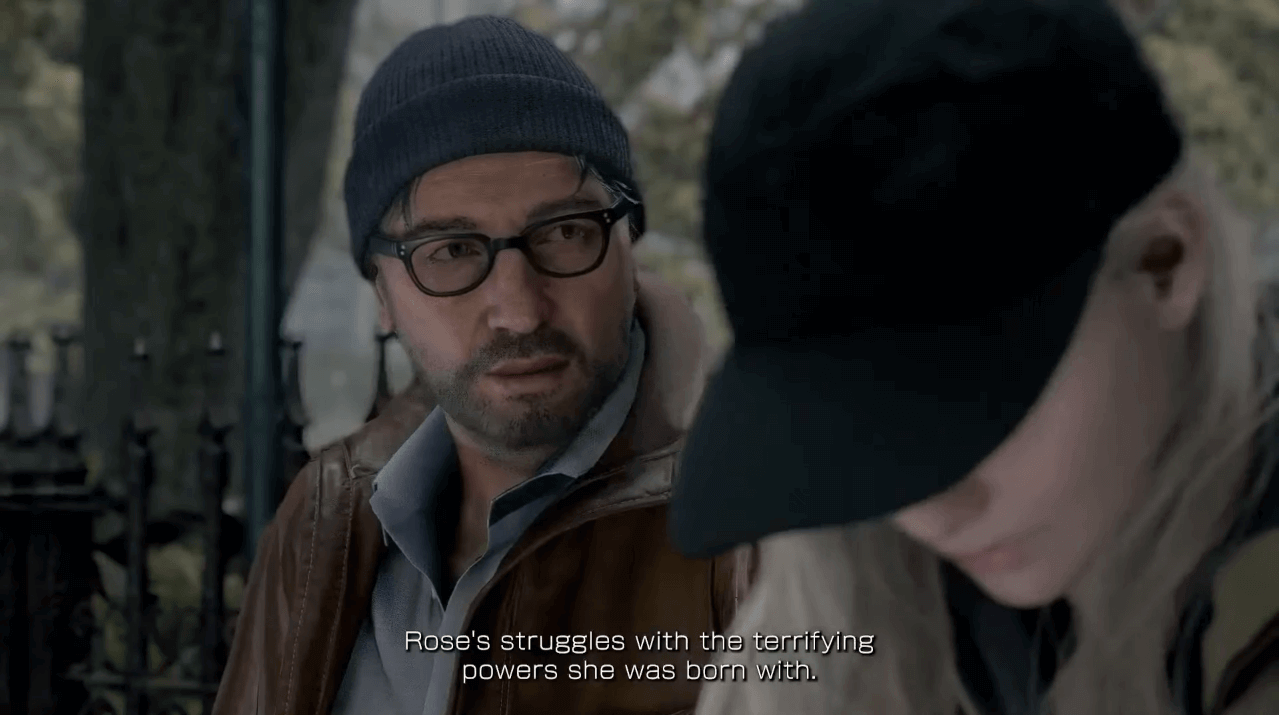
"Dog" meets Rose and comes in from afar, with a typical "How are you?" Rose complains that her peers think she's a monster because of her "mushroom" powers, to which "Dog" suggests she get rid of those powers.
It turns out that the megamycelium encapsulates the memory of dead infected people. "The Dog" manages to get some of the "mushroom stuff" out before the village explodes. And Rose, as a true Chosen One, can somehow read the memories from the flask with Miranda's remains.
The events of Shadow of Roses take place not in reality, but in the chambers of the deceased Miranda's mind, which gave Capcom carte blanche for self-replication. We find ourselves back in Alcina Dimitrescu's castle, where the hell is going on. In the basement room, Rosa stumbles upon her clones, who for some reason are being hunted by the DLC's antagonist, the once-good salesman Herzog. Herzog has apparently lost his mind and is behaving like a natural John Kramer from the movie "Saw," but without the help of cunning traps.
It is noteworthy that up to the end of the add-on we are not explained the reasons for Herzog's insanity, but we are given a chance to appreciate the new mechanics - the superpowers of Rosa herself:
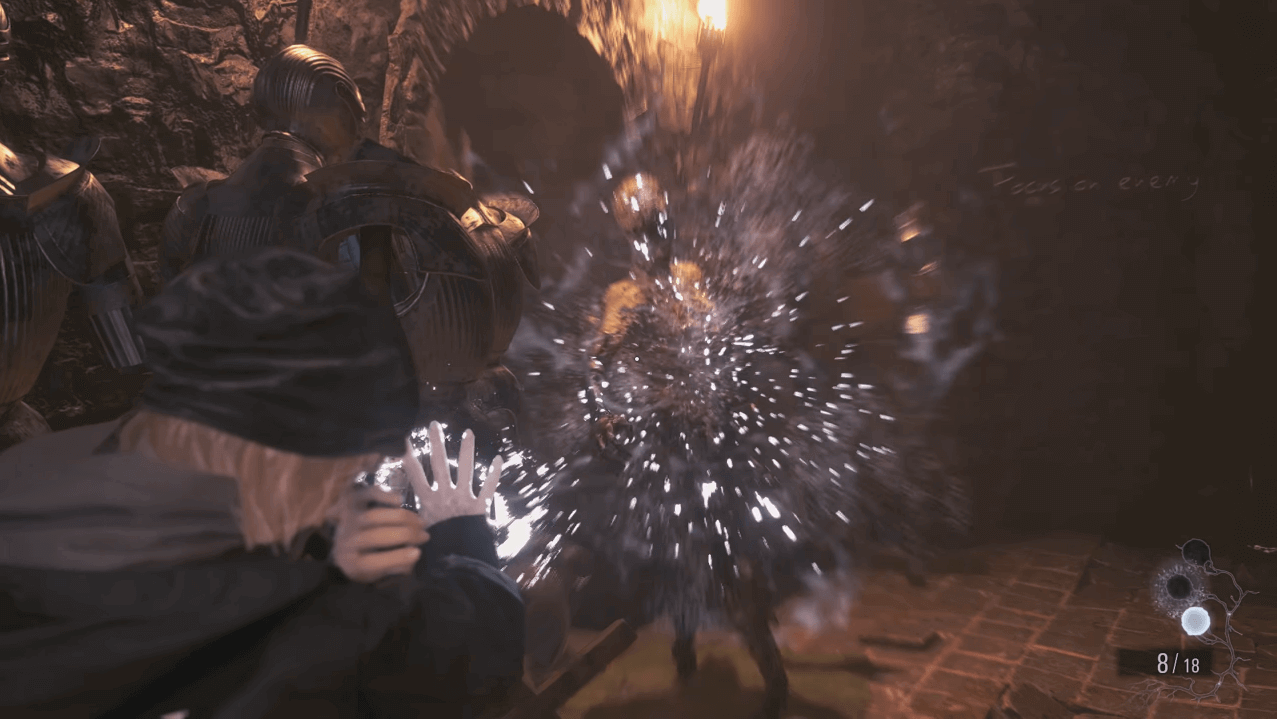
At first, playing with Rosa's abilities is fun, even though there's nothing like Prototype on minimal settings. We either stun the pseudo-molds or destroy the "fungus disease" shoots.
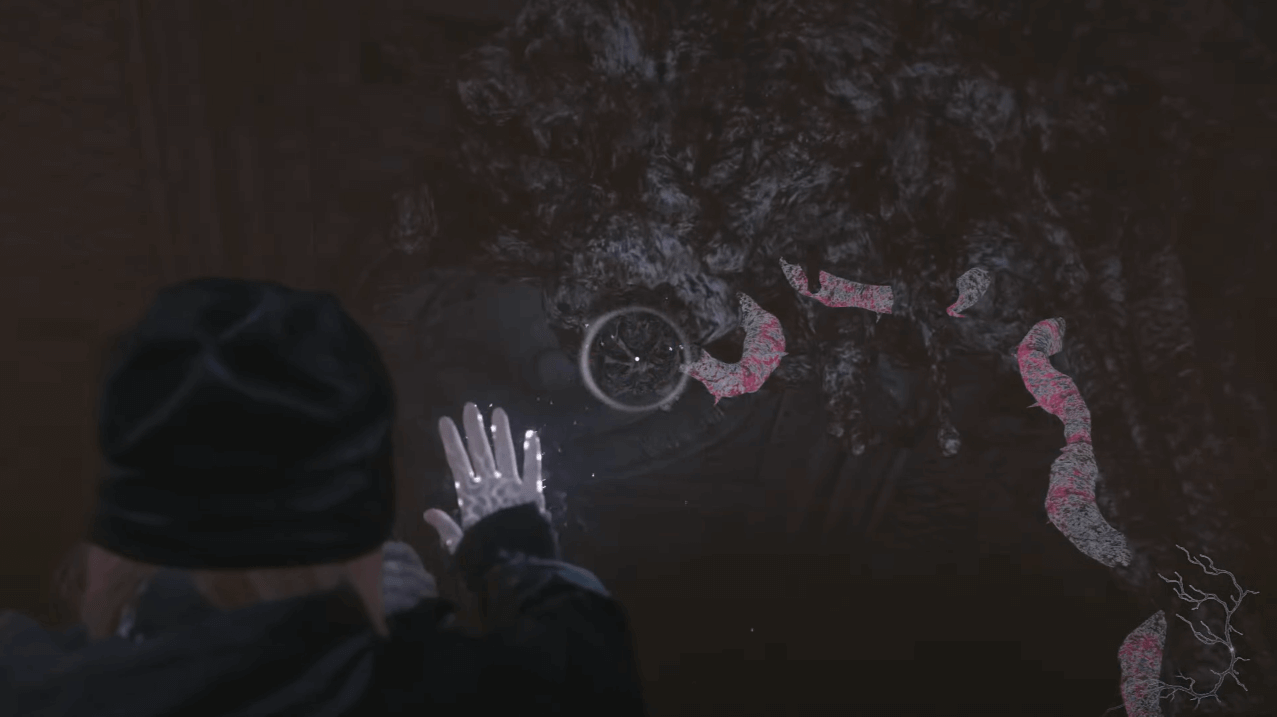
And in this case I went straight for trumps, because in addition to this ability we are sold a stripped-down, slightly reassembled Resident Evil: Village, and also divided by two: in the add-on will have to go through the castle Dimitrescu and the estate of Donna Beneviento. As in the original, the adventures on the estate creepy dolls - the most emotional moment in the game. The mannequins alone move only when you're not looking at them.
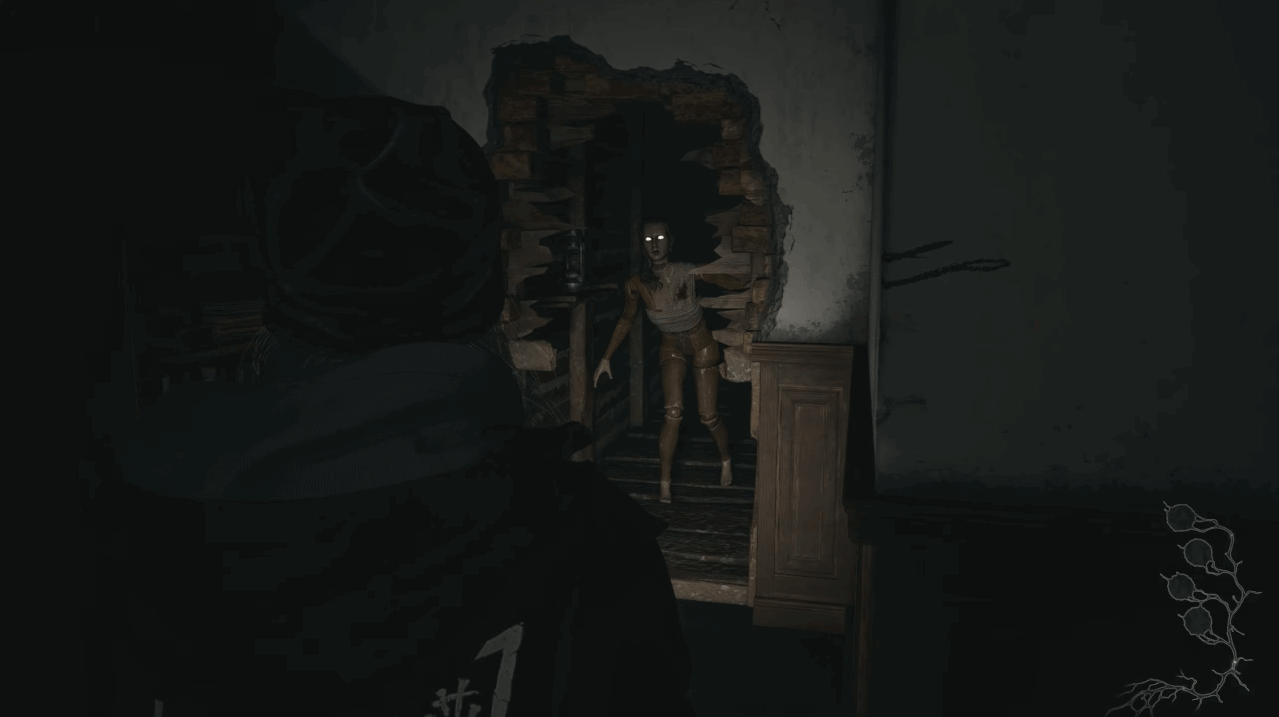
But that's where Shadow of Roses' good moments end. Next, a huge plot hole and a murky finale await you. The result of all the adventures of Roses neither moves the Resident Evil lore in any way, nor sheds any light on the Winters family. And many questions remain unanswered.
Why did the Duke go mad? How did Mother Miranda commit genocide in the infamous village in Bulgaria? Why does Resident Evil: Village make it clear that the Umbrella Corporation was involved in everything that happened, but how exactly? What was the relationship between Mother Miranda and Ozwell E. Spencer - you will find answers to all these questions in Google yourself, Shadow of Roses will not help you in this.
The only reason to go through this story add-on is to look at Rose's abilities, to get used to the idea that perhaps in the future Capcom itself will put emphasis on them.
Is it worth it?
The price of Resident Evil: Village - Winters' Expansion is $19.99. What are we buying for $20?
1. The ability to rewatch the third-person campaign with crooked animations.
2. New Mercenaries with 3 playable characters. Entertainment for an hour at most.
3. A story spin-off with a huge plot hole that in no way expands the Resident Evil lore, sheds no light on the Winters family, but gives you a glimpse of Rose's "mushroom" abilities.
Is such content worth the $20? The question is rhetorical.
